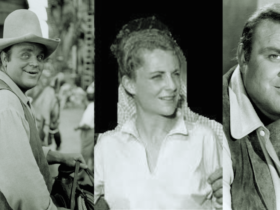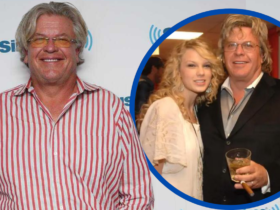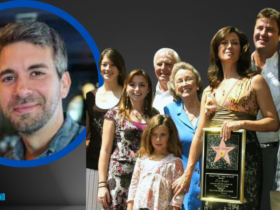In recent years, Alec Cabacungan and Kaleb-Wolf De Melo Torres, known as “the Shriners kids,” have become familiar faces to many viewers across the United States and beyond. These two boys, with their charisma and resilience, have become the faces of Shriners Hospitals for Children, appearing in various commercials that air on television and online.
The commercials often highlight their journeys, discussing their medical challenges. Shriners Hospitals’ vital role in their lives. But as these commercials have become popular, many have wondered: Do Alec and Kaleb get paid for commercials?
In this article, we’ll dive deep into this question by examining the background of Alec and Kaleb, the mission of Shriners Hospitals, and the broader context of charitable work and compensation. Our goal is to provide a comprehensive answer while also exploring the incredible impact these young spokespeople have had on the Shriners organization and the lives of countless families.
Who Are Alec Cabacungan and Kaleb-Wolf De Melo Torres?
Before diving into whether Alec and Kaleb get paid for their appearances, it’s essential to understand who these young advocates are and why they’re so closely associated wthey’reiners Hospitals for Children.
Alec Cabacungan: A Voice of Hope
Alec Cabacungan was born with osteogenesis imperfecta, commonly known as brittle bone disease. This genetic condition affects bone strength and makes those affected more susceptible to fractures. Despite the challenges that come with his diagnosis, Alec has been a strong and resilient young man. Over the years, he’s become one of the most recognized faces for Shriners Hospitals, sharing his story of hope and determination with viewers.
Through his role, Alec not only raises awareness about Shriners but also inspires others facing similar challenges to stay positive and keep pushing forward. His journey resonates with many, and he’s become an admired figure for his courage and perseverance.
Kaleb-Wolf De Melo Torres: A Story of Strength
Kaleb, another young ambassador for Shriners, has his own story of perseverance. Born with a rare bone disorder, Kaleb has undergone numerous surgeries and extensive treatment at Shriners Hospitals. Despite these hardships, Kaleb has remained optimistic, his infectious smile lighting up television screens nationwide. He inspires children and adults alike, demonstrating the power of resilience and the importance of quality healthcare.

Alec and Kaleb have shown exceptional strength and maturity, making them natural advocates for the organization that are integral to their healthcare. However, as their visibility has increased, so has public curiosity about their roles and whether they receive financial compensation for their appearances.
Do Alec and Kaleb Get Paid for Commercials?
This question is frequently asked by viewers who see Alec and Kaleb on their screens. The short answer is that, as far as publicly available information suggests, Alec and Kaleb do not receive payment in the traditional sense for their appearances in Shriners commercials. However, understanding why this is the case requires a deeper look into the nature of the organization and the role of these young advocates.
Shriners Hospitals for Children: A Nonprofit Mission
Shriners Hospitals for Children is a nonprofit organization founded in 1922. Itprovides specialized care for children with orthopaedic conditions, burns, spinal cord injuries, and other complex healthcare needs. Significantly, Shriners operates under a charity model, meaning it often provides care regardless of a family’s ability to pay.
As a family mission, Shriners aims to raise awareness and funds to continue providing high-quality care to children. Commercials featuring patients like Alec and Kaleb inform the public and encourage donations. These commercials are not traditional advertisements but rather part of a broader charitable initiative, helping the organization reach potential donors and supporters.
The Role of Patient Ambassadors
Alec and Kaleb serve as patient ambassadors for Shriners Hospitals. Their role is to share their personal stories and represent the hospital’s mission. As patiehospital’sdors, they are not considered paid actors or commercial spokespeople in the conventional sense. Instead, their participation is seen as a way to give back to an organization that has played a significant role in their lives. For these young ambassadors, appearing in commercials is often an opportunity to support a cause they genuinely believe in rather than a paid job.
That said, there may be non-monetary benefits provided to Alec and Kaleb. For example, their medical care at Shriners is often covered as part of the hospital’s charitable mission; participatingaigns gives them a platform to share their stories and, in some cases, opportunities to travel and participate in events. However, it appears that these young spokespeople are not financially compensated directly for their appearances.
Why Don’t Alec and Kaleb Receive donations?
Given the significant time and effort they dedicate to Shriners, it’s natural to wonder why Alit’snd Kaleb doesn’t receive payment. Here adon’tfew reasons why:

- Nonprofit Structure and Ethical Standards: As a nonprofit, Shriners Hospitals operates under strict guidelines to ensure that donations are used responsibly. Paying child patients for their participation in awareness campaigns could create ethical questions about using charitable funds.
- The Spirit of Volunteering: Many nonprofit organizations, especially those in the healthcare sector, rely on volunteers and ambassadors who are passionate about their mission. Alec and Kaleb, having received life-changing care, likely view their involvement as a way to give back.
- Public Perception: For charities, maintaining trust with the public is paramount. If people perceived that Shriners was paying child ambassadors, it could raise concerns among donors who want their contributions to go directly toward medical care and services, not promotional costs.
- The Opportunity to Make a Difference: Alec and Kaleb’s roles likely go beyond financial compensation. They have become symbols of hope and resilience, inspiring countless families and raising awareness about the importance of accessible healthcare. Their participation has a powerful impact, potentially more rewarding than a financial payout.
The Impact of Alec and Kaleb on Shriners’ Mission
Regardless of how Shriners are paid, Alec and Kaleb’s contributions have been invaluable to Shriners Hospitals. Their stories resonate deeply with audiences, helping to build awareness and support for the hospital’s mission. The hospitaltisectiony foster is essential for fundraising efforts, ensuring that more children can receive the care they need.
Thanks to ambassadors like Alec and Kaleb, Shriners Hospitals has been able to reach a broader audience and attract donations that support medical treatment, research, and facility improvements. The authenticity and courage they bring to each commercial make them highly effective advocates, helping to sustain a legacy of charity and compassion.
Are There Any Alternatives to Traditional Payment?
Although Alec and Kaleb may not receive traditional financial compensation, there could be other ways in which their work is recognized. For instance:
- Scholarships: Some charitable organizations provide scholarships or educational support to their ambassadors as a way of saying thanks for their contributions.
- Media Opportunities: Alec, in particular, has expressed an interest in sports broadcasting. His visibility with Shriners could open doors for future career opportunities and mentorship in this field.
- Personal Growth and Community Impact: Alec and Kaleb gain valuable experience in public speaking and advocacy by sharing their stories by sharing their stories. These skills will undoubtedly benefit them in the future, regardless of their career paths.
Conclusion: The True Value of Alec and Kaleb’s Contributions
In summKalesummary, a Kale may not receive traditional payments for their work with Shriners Hospitals; their roles as ambassadors are invaluable. Their involvement stems from gratitude and wanting to give back to an organization that has played a pivotal role in their lives. They have become symbols of hope, resilience, and the power of charitable healthcare, inspiring viewers and encouraging support for a worthy cause.
Do Alec and Kaleb get paid for commercials? The answer, it seems, is no. But their reward goes beyond financial gain, as they continue to make a lasting impact on Shriners Hospitals and the countless families who rely on its services.
Do Read: ImportantCool MomFood: Quick & Nutritious Recipes for Super Moms











Got a Questions?
Find us on Socials or Contact us and we’ll get back to you as soon as possible.